When Mary Tolan’s backpack – containing her wallet, passport and six months of writing – was stolen in Ireland, she thought all was lost. Over the course of five weeks on the Dingle Peninsula, she found something even more important.
“So you’re the American who lost everything, are you?” asked Vincent O’Gormain, who with his wife, Sile, owns a Dingle Peninsula bed and breakfast. This was a refrain I heard from many Irish during my visit, which moved from disaster and frustration to contentment and connection.
I’d walked from my borrowed cottage to Vincent’s place to rent a bicycle. Unable to rent a car, I figured a bike would provide a break from walking and hitchhiking. He had heard about my plight on the nationally known RTE Joe Duffy radio show (“Talk to Joe!”) and after he recognized my voice from the radio interview, his rental rates sank to half of what he normally charged.
As he fitted me for a blue bike with fat tires, his yellow lab, Molly, pushed her head gently into my hand. While I knew she was like many labs that beg for strokes, her nudges felt like one more Irish show of support and kindness.
Vincent’s offer was one of many I received from the people of the Dingle Peninsula after word spread that my backpack and six months of work had been stolen. I became a slight celebrity during my five weeks on the peninsula, as the national radio show and then the County Kerry weekly newspaper, The Kerryman, ran stories of one middle-aged American’s loss.
Dingle was once called “the most beautiful place on Earth” by National Geographic Traveler. Dingle’s physical beauty stole my breath away, yes, but it was the loveliness of the people, the kindness of nearly everyone I met, that floored me and then buoyed me up after my big loss.
It happened a year ago. Traveling alone after six months in Ireland, my backpack was stolen in the village of Killarney, and with it went six months’ worth of writing and photographs, a camera and laptop (and hard-drive back-up), passport and I.D., cash, plastic, journals, everything but the seven Euros in my pocket. I was devastated but soon I was being saved by the generous people of the Dingle Peninsula: the villagers of Baile na nGall and the townsfolk of Dingle, County Kerry.
The three days following the theft was a buzz of gardai (police) reports and investigations, e-mailing and calling my bank and credit cards, and wet-pillowed nights. I was in shock, and I was angry at myself for shoving my hard-drive into the same pack as my laptop, thus insuring the disappearance of all my work up to that point on my year’s sabbatical from teaching journalism at Northern Arizona University. I hadn’t been mugged, this wasn’t a death, but it felt big and bad.
After three days in Killarney and no return of my possessions, I took the bus to the Dingle Peninsula. When the thieves struck, I was waiting in a hotel lobby for the next-door car rental to open. I’d just gotten off the train from Dublin and had planned the drive from Killarney to Dingle because I’d heard so much about the scenery. After the theft, however, I was unable to rent the reserved car because I had no I.D. or driver’s license.
Even the banks and credit card companies I frantically contacted were mostly unable or unwilling to wire me cash without identification. Finally American Express agreed to wire money to the hotel, which then gave me my Euros.
Initially, I was going to borrow an Irish friend’s cottage for a week. After the theft, I was able to stay there for five weeks during which time I licked my emotional and professional gashes and went from bereft to renewal.
The cottage belonged to my friends Dorren and Oisin O’Siochru, whom I’d met in Malahide, north of Dublin, when I first arrived in Ireland. I’d borrowed a wonderful old Victorian-style house next door to them, and was immediately invited over for tea, dinners, and to Dorren’s brisk morning walks by the Irish Sea with some of her women neighbors.
Now, seven months later, the O’Siochrus had offered me a week in their cottage, in the village of Baile na nGall.
It was Dorren who, after I told her about the bag being stolen, suggested I contact Joe Duffy, the radio personality who hits the Irish airwaves every weekday afternoon with his call-in show, where topics range from politics to grievances to national controversies.
Joe interviewed me sympathetically, asking gentle questions that never pointed out it was my own damn fault for taking my eyes off my stuff. While the on-air “Liveline” conversation never returned my stolen goods, it certainly bought me a way to meet people.
For all I lost, the people of Ireland gave me tenfold in return. The list is a long one. But the first and probably biggest savior came in the shape of a young pub owner.
I went to Tigh TP’s, a pub just a half block from my Baile na nGall cottage, feeling a bit shy. I’d been told that the owner had a laptop at the pub that he let travelers use to check their e-mail.
I walked in and took in the L-shaped wooden bar, the boat lantern hanging from the ceiling, and the photos of Michael Collins. Most of the clientele were men speaking Irish Gaelic, their eyes glued to the TV set showing some match.
Sean Brendan O’Conchuir is the son of TP, who owned the bar before him. “You’re the American who lost everything,” he exclaimed when I said hello. “Phil told me all about you.”
Phil Brosnan ran the tiny post office up the road. When I’d arrived it was she who gave me Dorren’s extra key. “Oh, you’re the woman that everything happened to,” she’d greeted me the day before. With her maroon-tinted hair and grumbles usually followed by a laugh, Phil helped me keep a balance during my time in the village.
After I ordered a cup of tea and borrowed Sean’s laptop, I posed my big question.
“Do you know anybody in the village who might be able to rent me time at their computer a few days a week?” I explained that I was a writer and I needed to start recreating some of the work that I’d lost.
In typical Irish hospitality, Sean didn’t hesitate for more than a breath.
“I have a little electronic notebook at home. You’re welcome to use it for the time you’re here.”
And I did. On his tiny laptop, in the comfort of my borrowed cottage, with cups of milky Irish tea, I started to recreate the writings I’d lost.
And whenever I’d stroll down to the pub to check my e-mail and have a half pint, Sean and the regulars would ask if I’d heard anything from the gardai, then swap stories of police and government incompetence, and the state of the country’s flailing economy. It was at TP’s that actress Maureen O’Hara, on the peninsula for the Dingle Film Festival, heard about my plight, and in sympathy gave me her trillion-dollar smile.
And nearly every evening, my friend Dorren would give me a quick call to check in. “So you’re ALL right, Mary, are you?” she would usually conclude our conversation.
Dozens of people picked me up as I stuck out my thumb along the narrow roads on the edge of the Atlantic. I had not hitchhiked since my college years back in the ’70s. Now here I was, a foreigner in her late 50s, standing on the side of the road and hoping, praying, for a ride into town.
My first ride was from Dingle back to the village, carrying a (new) backpack full of groceries. The driver was a reticent farmer. When I opened the passenger door, I saw the sheep dog sitting on the front seat. The driver told me the dog wouldn’t mind sharing with me, so I slid in beside her and she moved part way to the floor, gazing up at me with her liquid brown eyes for the whole ride. The elderly farmer apologized for not giving me a ride all the way home, but he was going to a different village.
Through my hitchhiking I met mothers, children, cooks, a filmmaker, a developer, and a musician. Most laughed a lot. Often, they knew my story before I finished a sentence, and many apologized, as if they had done a runner with my backpack.
And then there was the Phoenix Cinema, and the O’Sullivans’ Tuesday Night Film Club. (The older generation say filum, not film.) The O’Sullivan family owns the movie theater and the adjacent video-rental shop, and in addition to the regular showings hold the Tuesday Night Film Club that offers a more eclectic range of movies.
From the first Tuesday night that I showed up and naively asked siblings Francis and Kathleen O’Sullivan if they could help me find a ride back to the village after the movie (they did) to the weeks of films and visits and rides home, I delighted in the cinema house and the family.
Michael O’Sullivan, 80, spoke to the crowd (sometimes just a handful) on Tuesdays, reminding the patrons of the free coffee and biscuits. He stood by an amazing home-made lamp constructed of a wooden coat rack and a blindingly bright light bulb covered by a tin coffee can (carefully placed each week by Michael’s other son, Sean), introducing the next week’s film by reading snippets from reviews and concluding by holding up a large film poster.
One Film Club regular is Eileen Clearly Fitzgerald, who has been going to the movie theater since 1960, when she was just 11.
“I never miss a Tuesday night. Never,” she said, driving me home. “It’s my favorite of all favorites.“
She said while she could go to the movies any night, it was the Tuesday Night Film Club and Michael O’Sullivan that persuaded her and others to return every week.
“We call [Michael] the king of Dingle,” she said with delight in her voice. “There’s something about him. There’s just something about him. He has class. That’s it, yes. “
One afternoon a month before I left Ireland I was walking through Dingle and ran into Kathleen, Michael and Francis – all independently. Kathleen and I shouted out hellos as she rushed to work. A block later Michael O’Sullivan and I ran into each other and took a walk along the Dingle pier. He posed for a photograph and then, looking at me with those deep blue Irish eyes, he told me to come back soon, saying “I hope to see you again, girl.” Two blocks after that I saw Francis, who invited me in for supper with his family. Always ready to discuss the economic crisis but just as quick to enjoy a joke, the O’Sullivans were open to this crazy American who hitchhiked from the village of Baile na nGall to Dingle every Tuesday to see the featured filum.
Michael O’Sullivan died several months after I left Ireland, and his family is adjusting to his absence, as are the Tuesday Night Filum Club devotees.
When Eileen told me about her love for the movies, she could have been talking of my feelings for her country.
“There’s something about it. When I go to the cinema, I forget the world,” she said. “It’s my heaven on earth. “
The first day I’d arrived in Dingle, the taxi driver who drove me past the sparkling Atlantic, through the narrow roads winding between stone walls, and past the sheep-dotted fields, said much the same thing. Not about the movies, but about Dingle.
“Dingle is grand,” he said. “It’s a magical place, a beautiful place, and people will always want to come here.”
The combination of Dingle’s scenery, the cliff walks with the ocean crashing below, and the people’s generosity will, for this Irish American, forever be Ireland.
See more photos from Mary Tolan’s travels:

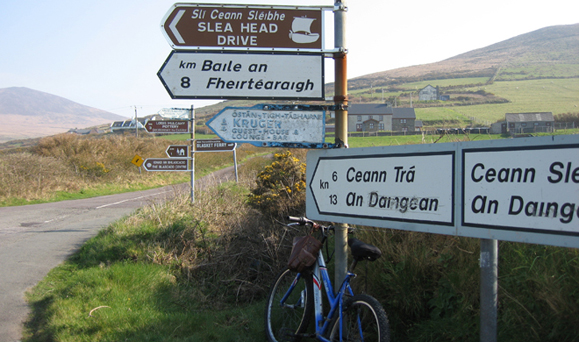
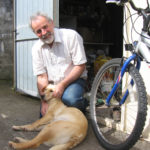
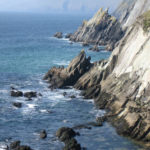
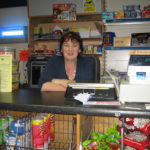
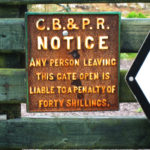
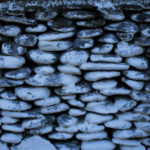
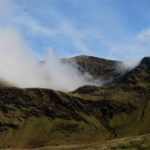
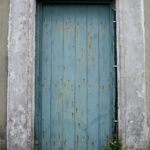
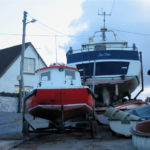
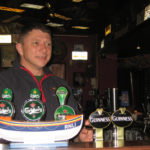
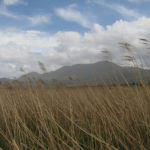
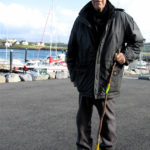
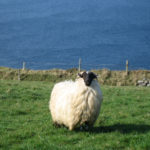
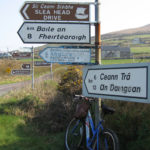
When someone has the grief and heartache yet can rise above it with the help of the kind people in the community that elevates their self-esteem quite a bit. Thanks for such a heartening story.
Thank you for a lovely story..I have been to Ireland 2x for a total of 3 weeks but have not been to Dingle..it will most definately be on my list for the next trip..
Hello Neighbor! I live in Flagstaff and enjoy your occasional column in the Arizona Daily Sun – loved your writing about meeting Maureen O’Hara. My late husband and I traveled to Ireland 6 years ago and visited Dingle for one beautiful, memorable afternoon (and one of the most wonderful meals we’d ever had). We both wished we could have spent more time there – I will definitely return. Thank you for writing about your experience!
Hi Mary, love this story – I can’t believe I didn’t hear about you as I think our times in Dingle must have overlapped…or at least I may have arrived just after you (end Feb 2012 – Sep 2012). Did you ever get anything back of your writing? What a nightmare but, as you say, you wouldn’t have met the Dingle clans if it hadn’t happened and the important bits will remain with you anyway. I wrote a blog on Dingle which starts here: http://www.thegrandtouronagrand.com/index.htm#114993
I went for three days and stayed six months! It has that effect on a person.
Best of luck with everything, I like tales like yours, Kerry.